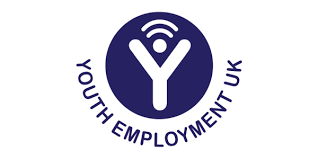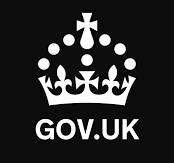- Home
- Personal Development
- Career and Future Pathways
- Useful Resources for Pupils, Parents and Teachers
- Teachers
Teachers
Embedding careers within the curriculum and why is it important?
FACT:
The statistics for adults with a learning disability and autism, known as adult social care, have remained consistently low across the country and the latest figures published in December 2023 show that the figure remains at 4.8%. A harsh reality for all our amazing West Kirby School and College pupils.
Every member of our staff team is crucial to the personal development of our pupils and supporting them with the tools to succeed and to navigate their career journey.
What is the point of embedding career education within the curriculum and what will our pupils gain from this?
Thinking back to when I was in school over 40 years ago (no comments please!), I received very little career advice and what I did was useless! Thankfully, education, support, advice and guidance has come a long way since then. With the government changes to vocational and technical education, with the introduction of the Careers Strategy in 2017, click here, and a new White Paper in 2021, click here. There is now more importance being placed on linking curriculum learning to careers.
It’s also one of the eight Gatsby Benchmarks (see below) which all schools and colleges are working towards to deliver high quality career education, and to make study subjects relevant to working life.
But what does this mean to you, the educator?
In a nutshell, it means blending careers into their learning and employability skills development at the heart of learning, giving our pupils the opportunity to interact with employers through encounters with employers, employees and work experience.
Our pupils need to have the opportunity to put what they are learning in the classroom into a practical context. It’s about ensuring that pupils understand the skills and needs of employers, so that they become more employable in the future. Highlight the careers that your subject will help them understand the opportunities available to them in further and higher education, so they can make informed decisions about their career.
It is important to understand how the job market will evolve in the future, click here to see the useful websites section and look at the areas of growth in the Merseyside, Cheshire and North Wales regions.
As industries evolve and develop, it is essential that our pupils are equipped with the tools they need to navigate the labour market, so they can be successful in their chosen career path. As educators, we are helping our pupils to develop the employability skills and qualities needed for careers that are adapting to the fourth industrial revolution, as well as preparing them for jobs that don’t currently exist. For example, jobs that include the world of artificial intelligence or robotics, using AR/VR technologies in a variety of industries, from healthcare to retail. As technology advances and tasks become more automated, employers will be looking for people that have both IT and non-IT related skills, such as emotional and social intelligence, creativity, collaboration, and complex problem-solving tasks that machine automation wouldn’t be able to handle.
How can I do this?
Schools need to ensure that employers play a part in the education of their students, which could be through employer live briefs, work-based learning, incorporating work experience placements, employer talks and demonstrations.
Bringing professions, such as self-employed authors, hospitality sector employer talks, sports professionals, etc provide our pupils the opportunity to practise what they are learning in a realistic work environment. For example, when setting up The School Bakery, the department provided the pupils with opportunities to work with restaurants and other bakeries to make sourdough, barista training etc. This practical experience not only makes learning more interactive and relevant but gives the pupils practical examples they can take away to use in future interviews, as well as having the opportunity to start building a network of contacts.
If you are finding it difficult to gain employer interaction, curriculum departments could look at simulated scenarios, try to simulate real working life, ensure that the task has as many features as you would find in a real workplace as possible, such as deadlines, constraints on time and resources, and roles that need to be filled. Our Enterprise Programme is a great opportunity for mathematics, English and IT departments to add to their curriculum.
Finding ways to show how what they are learning in their core curriculum relates to the world of work, will help our pupils to develop those skills and it is another practical experience students can draw on to demonstrate the skills and experience they have in future interviews.
What are the benefits for pupils?
By embedding careers within the curriculum, we can help students to understand the range of vocational opportunities that are linked to that learning, and how they can pursue those opportunities. It helps with motivation as students understand how what they are learning links into vocational careers, which in turn helps raise attainment and positive outcomes.
Helping our pupils to understand their realistic career options and how to make the best of opportunities, plus being able to develop relevant skills, qualities and attitudes, will help them to become more proficient at navigating the changing workforce. Our pupils face barriers to employment just because of their having special educational needs.
It’s rare that workers will spend their entire career in the same profession; often workers will change roles and employers throughout their working life. This means they need to be able to understand their skills and experience and how this can translate across to different industries and roles.
To find out more, contact the Careers team to see how we can help you to incorporate careers into your curriculum so that our pupils can make informed decisions about their next steps. Contact Helen Shallcross, Career Pathways Officer hshallcross@wkrs.co.uk
Gatsby Benchmarks
The Gatsby career benchmarks are a framework that schools and colleges can use to develop a good careers programme. They are the recommended elements of good practice in career guidance.
These benchmarks were born out of research completed by Sir John Holman in 2013. The purpose of this research was to identify ways to improve career guidance.
The ultimate aims?
- to provide young people with the tools to create successful futures
- to improve the social mobility of students who lack social capital
Every young person needs high-quality career guidance to make educated, informed decisions about their future choices. Good career guidance is a vital part of increasing social mobility, and the quality of long-term outcomes.
‘In 2013, Gatsby commissioned Sir John Holman to set out what career guidance in England would be like if it were good by international standards, resulting in the Good Career Guidance report, to read the report click here. The eight benchmarks set out in the report serve as a framework for improvement in careers provision and have been adopted as part of the Government’s Careers Strategy and statutory guidance for schools and colleges.’
Here are the 8 Gatsby Benchmarks and what West Kirby School and College did to achieve them in 2023/2024:
1 - A stable careers programme
This means an embedded programme of career education and guidance which pupils, parents/carers, school staff, governors and employers all understand and support.
West Kirby School and College has met 100% of the 17 assessment areas in benchmark 1.
| Our whole-school career programme achieved the following by: | |
|
Is written down - this website provides: An overview of our careers and personal development curriculum, click here. Our career policies and entitlement statements, click here Is approved by the board of trustees - we welcomed Mr Tom Whitworth Careers Trustee & Quality of Education Trustee to our career team in 2024. Has the explicitly back of senior leadership - career education has always been embedded in our curriculum and it has been in our school development for the last two years. Has resources allocated to it - we have a dedicated budget allocated to our careers and enterprise departments. Has systematic monitoring in place - We use Compass, Unifrog and SMSC Gridmaker to monitor and evaluate our provision Has both strategic and operational elements - Schools development plan, PHSE/careers curriculum and the daily support and advice that all our staff provide our pupils step towards achieving both long-term goals for our pupils and parents with the day-to-day effectiveness of our holistic wrap around of support, therapies and guidance that our pupils receive. Is published on your school website - we relaunched our website in June 2024. But it’s always been here, it's even better now! Is on the schools website with information aimed specifically at:
|
If you want to be part of the careers team, please speak to Steve Hulme (if you don't know who he is, click here) or email shulme@wkrs.co.uk
2 - Learning from career and labour market information (LMI)
Every pupil, and their parents, should have access to good quality information about future study options and labour market opportunities. They will need the support of an informed adviser to make the best use of available information. West Kirby School and College met 100% of the 2 assessment areas in benchmark 2.
|
AUTUMN TERM |
Year Group |
|
Embedding a career focus on Manufacturing & Production in the career sessions |
10, 11, 12, 13, 14 |
|
Unifrog usage in career sessions |
Post 16 |
|
SPRING TERM |
|
|
Embedding careers discussion in all core subject curriculum, highlighting various careers and LMI information - Remember the training in December 2023 and all the resources? |
7, 8, 9, 10, 11, 12, 13, 14 |
|
SUMMER TERM |
|
|
Unifrog usage in career sessions |
10, 11 |
|
Growth Sectors in Merseyside, Cheshire and North Wales |
10, 11 |
|
Relaunch of new career web pages to pupils, parents & carers and staff - Newsletter |
6, 7, 8, 9, 10, 11, 12, 13, 14 |
Have an idea how we can do better? Please let the Career Team know, click here.
3 - Addressing the need of each pupil
Advice and support should be tailored to the needs of each pupil. Keeping good records of pupils and their destinations after school will help.
|
Our career and personal development programme provides: |
|
|
Raises aspirations of all students |
|
|
Challenges stereotypical thinking (In terms of gender etc) We did that by all the amazing activities, PHSE and career curriculum, programmes and events that we offered our pupils. Please refer to the Personal Development pages of West Kirby School and College’s web pages for our: |
|
|
Keeps systematic records on each pupils’ experiences of career and enterprise activity
|
|
|
Enables pupils to access accurate records about their careers and enterprise experience We achieved by:
|
|
|
Collects and maintains accurate data for each pupil on their destinations for 3 years after they leave school
|
|
|
Shares above mentioned data with the local authority This is achieved by: Destination Data is published on our website every November when we understand the true destination of an individual.
|
|
|
Works proactively with the local authority and careers advisers to provide careers guidance to vulnerable pupils and special educational needs and disability (SEND) students.
|
4 - Linking curriculum learning to careers
Careers and enterprise education should be part of and included in a pupil's standard lessons, linking curriculum to real-world career paths. West Kirby School and College has met 100% of the 4 assessment areas in benchmark 4.
|
English lessons: To be completed. |
|
|
Mathematic lessons: To be completed. |
|
|
Science lessons: STEM days and weeks throughout the academic year |
|
|
PHSE & Career lessons: Please refer to the curriculum webpages, click here. And the career curriculum webpages, click here. |
5 - Encounters with employers and employees
All pupils should have encounters with employers and employees that result in a better understanding of the workplace and the potential career paths open to them. West Kirby School and College has met 100% of the single assessment area in benchmark 5.
|
AUTUMN TERM |
Year Group |
|
Self-Employed Author - Eva Wong Nava, author |
7, 8, 9, 10, 11, 12, 13, 14 |
|
The Lodge Elderly Care Home |
12, 13, 14 |
|
Horticulture : Garden Centre Employee & Workplace - Carr Farm |
11, 13, 14 |
|
Horticulture : Garden Centre Employee & Workplace - Gordale |
11, 13, 14 |
|
Liverpool Biennial |
10 |
|
Design Technology: Graffiti workshop |
10 |
|
Manchester Hip Hop event |
10, 11, 13, 14 |
|
Arts Residential (3 days) |
10, 13 |
|
Anyika Onuora Olympic Athlete |
All year groups |
|
Alder Cricket Club, West Derby |
8, 9, 10, 11, 12, 13, 14 |
|
Meet the Employer / Workplace - Turtle Bay |
10 |
|
Meet the Employer / Workplace - Gusto Albert Dock |
11 |
|
STEM Day: Discovery |
All year groups |
|
Creative iMedia |
10, 11 |
|
The National Apprenticeship Show |
11, 12, 13, 14 |
|
Wirral Career Fair : The Hive |
11 |
|
SPRING TERM |
|
|
Self-employed Author - Dan Freeman |
All year groups |
|
Horticulture : Garden Centre Employee & Workplace - Autism Together |
11, 13, 14 |
|
SUMMER TERM |
|
|
Armed Forces Day (RAF, Navy, Army and Marines) |
All year groups |
|
STEAM Week |
All year groups |
|
Meet The Employer - Bakehouse Wirral |
10 |
|
DJ Gym Manchester - Intro to DJ'ing |
8 |
|
Work Experience (weekly) Greasby Infant School (1 x pupil) |
12 |
|
Work Experience (weekly) Tam O’Shanters Urban Farm ( 1 x pupil) |
8 |
|
Work Experience Week 24th to 28th June |
11 |
|
Work Experience Week 1st to 4th July |
12, 13, 14 |
6 - Experiences of workplaces
It's important for pupils to experience the workplace environment to understand the context in which they could one day be working. West Kirby School and College has met 100% of the 2 assessment areas in benchmark 6.
|
This will be achieved by either all or the overwhelming majority of our pupils: |
||
|
Have had a meaningful experience of a workplace by the end of year 11 |
||
|
Have obtained meaningful experience of a workplace during years 12 and 13 |
||
We achieved this by:
|
AUTUMN TERM |
Year Group |
|
The School Bakery - Open to the public Tuesdays and Wednesdays |
10, 11, 14 |
|
The School Bakery - Open to school pupils and staff on Fridays |
10, 11 |
|
SPRING TERM |
|
|
The School Bakery - Open to the public Tuesdays and Wednesdays |
10, 11, 14 |
|
The School Bakery - Open to school pupils and staff on Fridays |
10, 11 |
|
SUMMER TERM |
|
|
The School Bakery - Open to the public Tuesdays and Wednesdays |
10, 11, 14 |
|
The School Bakery - Open to school pupils and staff on Fridays |
10, 11 |
|
Work Experience (weekly) Greasby Infant School (1 x pupil) |
12 |
|
Work Experience (weekly) Tam O’Shanters Urban Farm ( 1 x pupil) |
8 |
|
Work Experience Week 24th to 28th June |
11 |
|
Work Experience Week 1st to 4th July |
12, 13, 14 |
7 - Encounters with further and higher education
Careers provision should cover further and higher education as well as potential professions. Pupils should have encounters with these organisations whilst at school. West Kirby School and College has met 100% of the 6 assessment areas in benchmark 7.
|
By the time they leave school all/the overwhelming majority of pupils: |
|
|
|
|
|
|
|
|
|
|
|
|
We achieved this by:
|
AUTUMN TERM |
|
|
Meet The College & Training Provider Event (In-house) 9 x Training Providers, Colleges and 6th Form Colleges |
6, 7, 8, 9, 10, 11, 12, 13, 14 |
|
Greenbank College - Sports Department |
8, 9, 10 |
|
Greenbank College - Tour of campus and meet staff |
9,10, 11 |
|
Greenbank College - Sports Department |
9, 11, 13 |
|
Wirral Metropolitan College - Tour of campus and meet staff |
11 |
|
Coleg Cambria - Yale Campus |
11 |
|
Wirral Career Fair : The Hive |
11 |
|
The National Apprenticeship Show |
11, 12, 13, 14 |
|
SPRING TERM |
|
|
Liverpool University - Languages Department |
10, 11, 12, 13, 14 |
|
Greenbank College - Tour of campus and meet staff |
9, 10, 11 |
|
Greenbank College - Sports Department |
9, 10 |
|
Greenbank College - Sports Department |
8, 9, 10, 11 |
|
Myerscough College - Tour of campus and meet staff |
10, 11, 12, 13 |
|
Reaseheath College - Tour of campus and meet staff |
13 |
|
Riverside College - Tour of campus and meet staff |
14 |
|
College interview - Cheshire South & West College |
14 |
|
College Taster 4 x Days - Wirral Metropolitan College Conway Park |
13, 14 |
|
Coleg Cambria - Northop Campus - tour of campus and meet staff |
10, 11 |
|
Coleg Cambria - Northop Campus - tour of campus and meet staff |
13 |
|
College Assessment Day x 2 - Petty Pool |
13 |
|
SUMMER TERM |
|
|
Wirral Metropolitan College - 12 Quays Campus Transition Visits (3 visits) |
13 |
|
College Taster day - Aspris College |
14 |
|
College Taster 2 x days - Riverside College |
14 |
8 - Personal guidance
Every student should have opportunities for guidance interviews with a career adviser, who could be internal or external, provided they are trained to an appropriate level. West Kirby School and College has met 100% of the 2 assessment areas in benchmark 8.
|
By the time they leave school, all/the overwhelming majority of pupils: |
|
|
Have had an interview with a professional and impartial careers adviser by the end of year 11 |
|
|
Have had at least two interviews with a professional careers adviser by the end of year 13 |
For more information or support, please contact Helen Shallcross via hshallcross@wkrs.co.uk
Secondary / Post 16 Useful Websites:
|
Unifrog https://www.unifrog.org/teacher/resources |
|
 |
Pathway CTM Looking for support for pupils to feeling confident when knowing about their options post-GCSE and A-Level. By signing up to our teacher network, you’ll gain access to helpful tools to use when supporting pupils with their future careers. |
|
Barclays |
|
 |
My World of Work |
|
|
CEC - PMLD World of Work Lesson Ideas https://resources.careersandenterprise.co.uk/resources/pmld-world-work-lesson-ideas
|
 |
Youth Employment UK https://www.youthemployment.org.uk/teachers-resources/careers-lesson-plans/ |
 |
The Wow Show |
 |
Spending Sense Young Enterprise provides resources and training to anyone teaching young people money management skills through the financial education brand Young Money. |
|
FIVER CHALLENGE Children aged 5-11 have four weeks to research, create, plan and run their own business with a £5 pledge. A highly interactive and fun programme introducing enterprise and financial education and enhancing key skills, including creativity, problem solving, teamwork and confidence Flexible programme: https://www.fiverchallenge.org.uk/en/fiver-diy Four week challenge plan: https://www.fiverchallenge.org.uk/en/the-challenge |
|
 |
Ofsted has strengthened expectations with respect to careers education, information, advice and guidance (CEIAG), and specifically around provider access legislation. Ofsted’s school inspection handbook sets out its approach to evaluating personal development and careers provision in graded inspections in paragraph 306. Ofsted’s grade criteria establish the expectation that a school with 'good' personal development will meet the requirements of the provider access legislation. School inspection handbook |
Careers for Primary
 |
Careers and Enterprise - Primary |
|
Barclays |
|
 |
Introducing Careers to Primary https://www.myworldofwork.co.uk/teaching-resources/primary-how-to |
 |
The Education People |
 |
A New Direction https://www.anewdirection.org.uk/blog/how-to-introduce-careers-to-primary-students |
Unifrog
BE MORE
